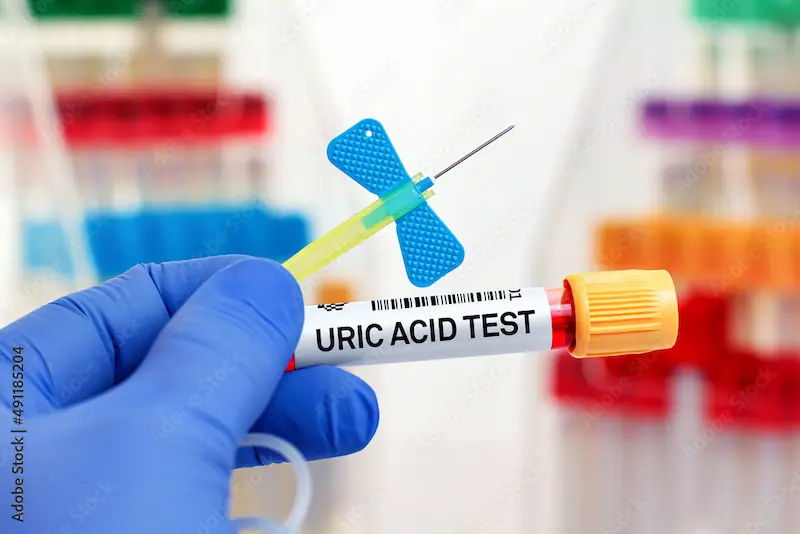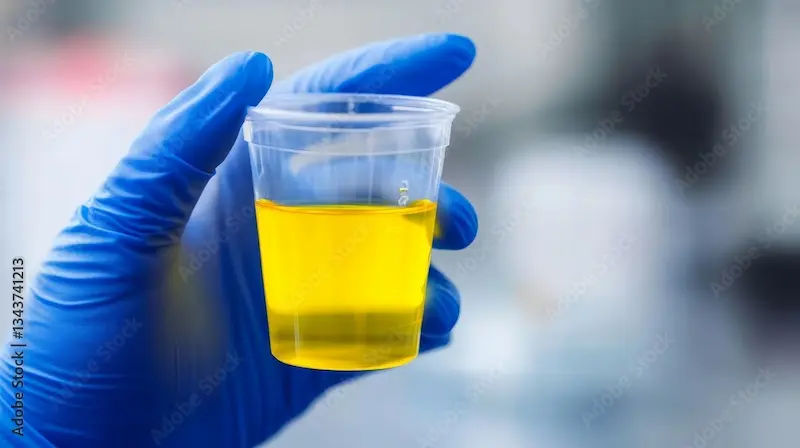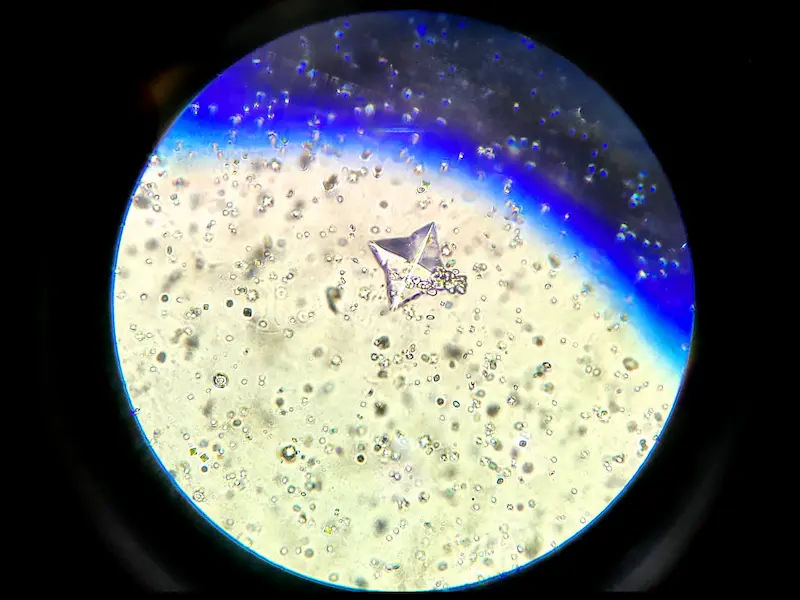Pyelonephritis: Symptoms, Treatment and Causes
Pyelonephritis is a serious kidney infection caused by bacteria, often from untreated UTIs. Learn its symptoms, causes, diagnosis, treatment options, and prevention tips to protect your kidney health.

Written by Dr. Rohinipriyanka Pondugula
Reviewed by Dr. Vasanthasree Nair MBBS
Last updated on 22nd Aug, 2025

If you or someone you know has been diagnosed with pyelonephritis, you might be wondering what it means and how to manage it. This article will help you understand this condition in simple terms, covering its symptoms, causes, treatment options, and ways to prevent it.
What is Pyelonephritis?
Pyelonephritis is a type of urinary tract infection (UTI) that affects the kidneys. Unlike a simple bladder infection, pyelonephritis is more serious and can lead to complications if not treated promptly. It occurs when bacteria from the bladder travel up to the kidneys, causing inflammation and infection.
Symptoms of Pyelonephritis
Recognising the symptoms early can help in getting timely treatment. Common signs include:
- High fever (often above 101°F or 38.3°C)
- Severe pain in the lower back or side (where the kidneys are located)
- Chills and sweating
- Nausea and vomiting
- Frequent, painful urination (burning sensation)
- Cloudy, bloody, or foul-smelling urine
- Fatigue and general weakness
In older adults or people with weakened immune systems, symptoms may be less obvious, such as confusion or only a mild fever.
What Causes Pyelonephritis?
The most common cause is bacterial infection, usually E. coli, which enters the urinary tract and spreads to the kidneys. Other causes include:
- Untreated bladder infections (cystitis) – If a UTI is not treated, bacteria can move up to the kidneys.
- Blockages in the urinary tract – Kidney stones, enlarged prostate (in men), or structural abnormalities can trap urine,
increasing infection risk. - Weakened immune system – Conditions like diabetes or medications that suppress immunity make infections more
likely. - Catheter use – Long-term urinary catheter use can introduce bacteria into the urinary system.
- Pregnancy – Hormonal changes and pressure on the bladder can increase UTI risk.
Consult Top Specialist
How is Pyelonephritis Diagnosed?
If you experience symptoms, a doctor may recommend:
- Urine test – Checks for bacteria, white blood cells, or blood in the urine.
- Blood tests – Detects signs of infection or kidney function issues.
- Imaging tests – Ultrasound or CT scan to check for kidney stones or abscesses.
Treatment for Pyelonephritis
1. Antibiotics
Since pyelonephritis is a bacterial infection, antibiotics are the main treatment. Your doctor will prescribe the right type based on the bacteria causing the infection.
- Mild cases – Oral antibiotics for 7–14 days.
- Severe cases – Hospitalisation and IV antibiotics may be needed.
Always complete the full course of antibiotics, even if you feel better, to prevent recurrence.
2. Pain and Fever Management
- Over-the-counter pain relievers (like acetaminophen) can help with fever and discomfort.
- Drinking plenty of water helps flush out bacteria.
3. Hospitalisation (if needed)
Severe infections, dehydration, or complications (like kidney abscesses) may require hospital care for IV fluids and antibiotics.
How to Prevent Pyelonephritis
1. Prevent UTIs
- Stay hydrated – Drink plenty of water to flush out bacteria.
- Urinate frequently – Don’t hold urine for long periods.
- Wipe properly – Always wipe from front to back after using the toilet.
- Urinate after sex – Helps flush out bacteria that may have entered the urethra.
2. Manage Underlying Conditions
- Control diabetes to reduce infection risk.
- Treat kidney stones or prostate issues if they block urine flow.
3. Avoid Irritants
- Limit caffeine, alcohol, and spicy foods that can irritate the bladder.
- Avoid using harsh soaps or douches in the genital area.
When to See a Doctor
Seek medical help immediately if you have:
- High fever with back pain
- Nausea/vomiting is preventing you from keeping fluids down
- Blood in urine
- Symptoms not improving after 2–3 days of antibiotics
Book a Consultation with Apollo 24|7
If you suspect a kidney infection, don’t delay treatment. You can consult a specialist or book a urine test through Apollo 24|7 for quick diagnosis and care.
Final Thoughts
Pyelonephritis is a serious but treatable condition. Recognising symptoms early, taking prescribed antibiotics, and following preventive measures can help avoid complications. If you experience any signs of a kidney infection, consult a doctor promptly for proper care.
Consult Top Specialist
Consult Top Specialist

Dr. Mainak Baksi
General Practitioner
13 Years • MBBS , MD (MPH)
Howrah
Mainak Baksi Clinic, Howrah
(50+ Patients)

Dr. Rajib Ghose
General Practitioner
25 Years • MBBS
East Midnapore
VIVEKANANDA SEBA SADAN, East Midnapore

Dr. Dhankecha Mayank
General Practitioner
6 Years • MBBS
Gujarat
Apollo 24|7 Virtual Clinic - Gujarat, Gujarat

Dr. Shubham Chauhan
General Practitioner
4 Years • MBBS
Lucknow
Apollo 24|7 Clinic - Uttar Pradesh, Lucknow

Dr. Deeptangshu Ganguly
General Practitioner
12 Years • MBBS , MD (Pharmacology)
Raniganj
The Polyclinic and Pharmacy, Raniganj
Consult Top Specialist

Dr. Mainak Baksi
General Practitioner
13 Years • MBBS , MD (MPH)
Howrah
Mainak Baksi Clinic, Howrah
(50+ Patients)

Dr. Rajib Ghose
General Practitioner
25 Years • MBBS
East Midnapore
VIVEKANANDA SEBA SADAN, East Midnapore

Dr. Dhankecha Mayank
General Practitioner
6 Years • MBBS
Gujarat
Apollo 24|7 Virtual Clinic - Gujarat, Gujarat

Dr. Shubham Chauhan
General Practitioner
4 Years • MBBS
Lucknow
Apollo 24|7 Clinic - Uttar Pradesh, Lucknow

Dr. Deeptangshu Ganguly
General Practitioner
12 Years • MBBS , MD (Pharmacology)
Raniganj
The Polyclinic and Pharmacy, Raniganj



